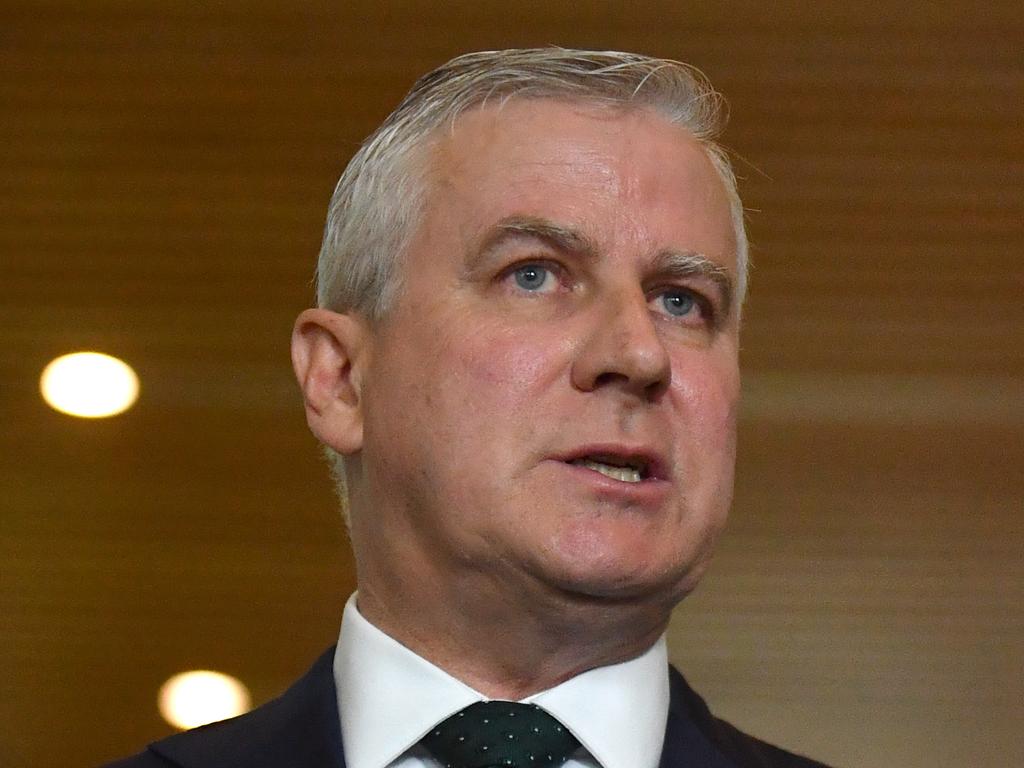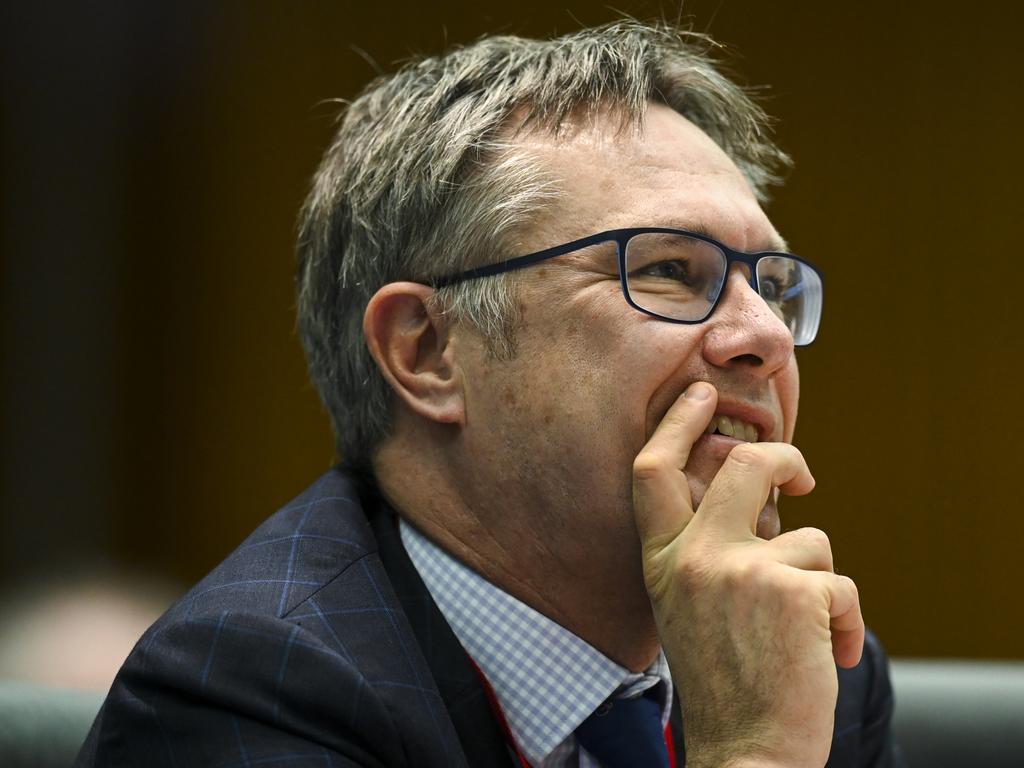Coronavirus: Nation on the brink of reverse as virus cost revealed
Treasury and the RBA are forecasting the virus will cut growth by 0.5 percentage points, likely putting the economy in negative territory.

Treasury and the Reserve Bank are forecasting the coronavirus will cut growth by 0.5 percentage points, likely putting the economy in negative territory for the first three months of the year, despite a lift in consumer spending helping to push GDP up in the December quarter.
The Australian understands Treasury secretary Steven Kennedy will on Thursday back the assessment of Reserve Bank deputy governor Guy Debelle, who last night warned a dive in student arrivals and the impact on the education sector triggered by the coronavirus would wipe up to half a percentage point from GDP growth in the current March quarter.
Appearing before a Senate estimates committee, Dr Debelle said the RBA had analysed student visas and airport arrivals and concluded these services sectors, which make up about 5 per cent of the economy, would take a 10 per cent hit over the three months through to the end of March.
“It doesn’t look like the effect of the bushfires had all that much impact on the December accounts. The effect in the national accounts is not particularly apparent. We expected, and still continue to expect, the impact to be larger in the current (March) quarter,” he said.
Dr Debelle said the economy could stage a bounce-back once the virus passed.
“The only difference between the financial crisis and this (the coronavirus) is that there is a probability that the virus will have its effect and go away,” Dr Debelle said, noting that the effects of the GFC were longer-lasting.
“There are ongoing risks to consumption growth. We had, absent viral effect, expected to see a gradual pick up in growth over the period ahead.”
Dr Debelle also warned the RBA was almost out of monetary policy options as the official cash rate headed towards zero. “We’ve got the capacity to reduce rates one more time,” he said.
He added that the RBA would then launch a program of quantitative easing “if there is a need for further stimulus”.
Australian shares tumbled on Wednesday after an emergency 0.5-percentage-point rate cut by the US Federal Reserve spooked investors and forced Treasury officials back to the drawing board as they raced to finalise their advice on the potential damage from the global coronavirus epidemic. The S&P/ASX 200 index dropped by 110 points, or 1.7 per cent, to 6325 points, cutting short hopes for a recovery following Tuesday’s 0.25-percentage-point rate cut by the Reserve Bank and despite national accounts data showing the economy turned gently for the better in the final three months of 2019.
Dr Kennedy is not expected to predict the economic impacts of the coronavirus beyond March 31, with the government’s fiscal response yet to be finalised. Economists have also rejected the suggestion that a recession is a fait accompli if the total impact over the course of the year is contained to less than 0.7 percentage points.
National accounts released on Wednesday showed consumer spending helped lift GDP by 0.5 per cent over the December quarter, bringing overall growth to 2.2 per cent in 2019. The figures showed a mild acceleration in growth from 1.8 per cent over the year to September, after the ABS revised up third-quarter growth to 0.6 per cent. Economists attributed the stronger than expected growth figure in part to a 0.4 per cent rise in consumer spending, after a 0.1 per cent gain in the prior quarter.
Josh Frydenberg said the US emergency rate cut had delayed a much-anticipated analysis from Treasury on the potential impact of the coronavirus on Australia, but argued that the GDP figures showed the economy was resilient and continued to “defy all those who seek to talk it down”.
The Treasurer said the economic impact of the coronavirus was “serious and ongoing” and again pledged “targeted, responsible and scalable” measures to support affected sectors. He clarified that these measures would be implemented before the budget. Speculation is intensifying that the government will introduce investment tax breaks for business as part of the package.
The fiscal response will be “designed to keep businesses in business and Australians in jobs”, Mr Frydenberg said.
He indicated there were no plans for a broader package of support such as that implemented by the Labor government during the GFC.
“When we are over this economic shock, we want the Australian economy to be stronger,” he said. “We want to have greater productivity and investment is a key part of that.”
Australians spent more on household goods, furnishings, and clothing and footwear, the ABS data showed. Economists pointed to the success of sales events leading up to Christmas as a possible reason for the additional spending, but Mr Frydenberg was quick to say it was evidence households had started to spend the boosted tax rebates from the government’s low- and middle-income tax offset.
A climbing housing market may have also contributed to the additional spending, alongside the three rate cuts in the middle and second half of last year.
PwC chief economist Jeremy Thorpe said the numbers showed the economy through the second half of 2019 was “not good, but not terrible”, and that there had been a gentle improvement. JPMorgan economist Ben Jarman said he had downgraded his GDP growth forecasts for 2020 by 0.6 per cent as a result of the virus. Investors were initially buoyed by the Fed’s cut, which came two weeks ahead of the next scheduled meeting, but the mood soured as markets digested comments from chairman Jerome Powell that monetary policy would do little to address the immediate threats of the coronavirus crisis.
Additional reporting: Patrick Commins







To join the conversation, please log in. Don't have an account? Register
Join the conversation, you are commenting as Logout